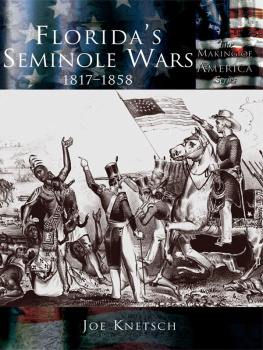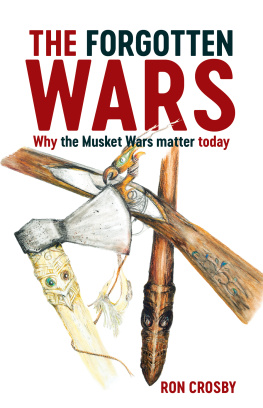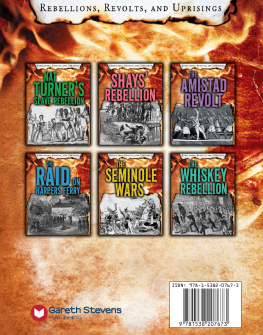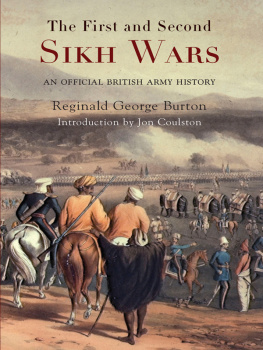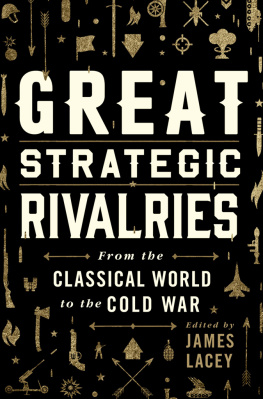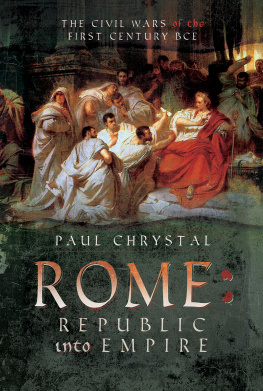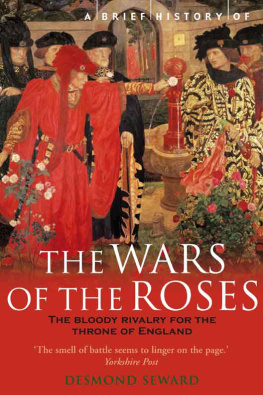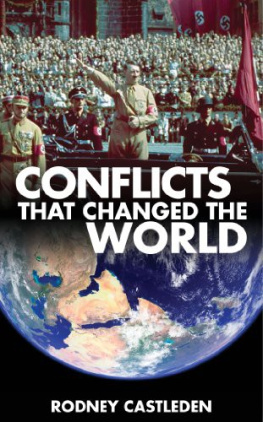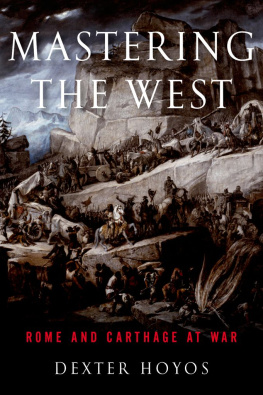WHY SOME WARS NEVER END
WHY SOME WARS NEVER END
THE STORIES OF THE LONGEST CONFLICTS IN HISTORY
JOSEPH CUMMINS

CONTENTS
INTRODUCTION
Why Some Wars Never End: The Stories of the Longest Conflicts in History focuses on an underexamined phenomenon: the frequency of never-ending wars that run counter to the expectation that war takes off from a point of political or diplomatic impasse and has a relatively predictable duration.
The fourteen wars discussed in this volume went on for decades, some for generationsthe Punic Wars went on for 120 years, the Ottoman Wars lasted centuries, the modern-day wars in Vietnam continued for a total of fifty years. It is important to note that my definition of long war does not mean continuous fighting for the noted period of timethough sometimes it doesbut that an unresolved state of enmity existed between the warring parties for at least two generations, a condition that can and does erupt again and again into violence.
Many people think that long wars are irrationala conflict in which both a great-grandfather and his great-grandson can fight runs counter to normal human impulses toward sanity and self-preservation. The problem with this thinking is that it presupposes that it is in the best interests of a combatant to actually end the war. Many times, it is not.
The chapters in Why Some Wars Never End are grouped into sections indicating the main reasons wars go on foreverwars of empire, religious wars, guerilla wars, nationalist struggles, and wars of chaos (where events spin out of control, proving historian Carl von Clausewitzs maxim that war is the province of chance. In no other sphere of human activity must such a margin be left for this intruder).
LIVING TO FIGHT ANOTHER DAY
Long wars such as the Vietnam struggle against France and the United States, the nineteenth-century British battles in Afghanistan, or the U.S. attempt to crush the Seminoles in Florida go on for years because the weaker combatant (militarily) uses guerilla tactics and the advantages of local landscape to wear its opponent down. Fighting, then running away to fight another day, takes time.
Another reason wars never end is because peacemaking can be so imperfect and unfair. Every truce called during the Hundred Years War was not so much a real peace as a breathing space for exhausted combatants to rest their weary sword-arms before leaping at each others throats again. Peace can be unworkable becauseas was the case with Carthage, defeated in the First Punic War by Romeone party is still ready to go on fighting, or feels that the victors are exacting unduly harsh penalties.
Long wars are made long by fearless and charismatic leaders such as Hannibal, Ho Chi Minh, and David Ben-Guriongenerals and politicians who decided (generally speaking against conventional wisdom and to the surprise of their enemies) to keep on fighting, no matter what the cost. A powerful factor in a long war is a leaders estimation that his people have more to lose by conceding than by fighting on.
Perhaps some of the primary reasons for never-ending warfare are ethnic and religious tensions, both of which run like fast-moving currents throughout the millennia spanned by Why Some Wars Never End. Territory can be negotiated, as can monetary losses, even the destruction of entire citiesbut religion cuts too close to the bone. The Balkan Wars, the Arab-Israeli conflicts, the Ottoman Wars, and the Troubles in Northern Ireland are wars that have lasted an interminable amount of time because religion entered the argument. The mujahideen fighting U.S. and allied forces today in Afghanistan are descendants of the holy warriors who battled the British more than a century before. When Slobodan Miloevi stirred up Serbian nationalism in 1989 at a famous speech in Kosovo, his main rallying point was a battle in which the Christian Serbs had been defeated by Muslim Ottomans six hundred years before.
In an age of worldwide jihad, never-ending war may well be the future of conflict. The administration of George W. Bush formally put forth this concept in 2006, when a Defense Department report titled Fighting the Long War claimed that the United States is a nation engaged in what will be a long war against terror in Iraq, Afghanistan, and throughout a so-called arc of instability that includes the Middle East and parts of Africa and Central and South Asia. Then-Secretary of Defense Donald Rumsfeld said that the war on terrorism was a generational conflict akin to the Cold War. If this happens, if long wars become the norm and not the exception, then real and lasting peace will be something even more precious than it is now.

SECTION I
CARTHAGE MUST BE DESTROYED!
WARS OF EMPIRE
Great struggles that were long because
the future of empires were at stake.
CHAPTER 1
THE GRECO-PERSIAN WARS
REMEMBER THE ATHENIANS
500449 BCE
The overweaning ambitions of a vast aristocracy and the stubborn independence of a young people led to a fifty-year-long war that opened the way to the flowering of the Greek golden age.
In a time when the average man lived, at most, thirty-five years, a half-century of war was an eternity. The Greco-Persian Wars, one of the most important wars in history, lasted for fifty years in part because it featured an epic struggle between two very different ways of life. On the one side was the Persian Empire, a vast autocracy ruled by a godlike king who believed that all the peoples of the world were essentially his subjects. On the other were the Greek city-states, which, despite the disputes that often flared between them, shared a common Hellenic identity, as well as a democratic spirit that allowed for open political debate and favored representative forms of government.
The Greco-Persian Wars was the first clash of empires in history that had a direct effect on the Western world, because the survival of the Greeks would translate into a Golden Age of art, literature, culture, and thought that influences us to this day. It was a clash between an old world and a new one. The old world of the Persians featured demigods, magic, high priests, the wealth of the East, and the sense that the world was there to be conquered. The new world of the Greeks was one based on independent thought, majority rule, and individual strivingall of which would result in the democracies of the West.
The wars fought between the Greeks and the Persiansfought really between two different ways of lifelasted for fifty years because there could be no compromise solution between such differing world philosophies. In heroic battlefields like Marathon, Thermopylae, and Salamis, the arrogant armies of the god-kings met the sturdy stubbornness and independent tactical thinking of the Greeks, particularly in the form of three Greek commanders, each iconoclastic and flawed, yet willing to take chances. Because of these three men, the Greeks lived to fight another dayuntil an eternity of war had passed and the Greeks, and eventually Western civilization, were triumphant.
THAT I MAY PUNISH THE ATHENIANS
In 500 BCE, the Persian Empire was reaching its peak. It began sixty years earlier when Cyrus the Greats armies had swept out of the grasslands of what is now Iran to destroy the Medes and Babylonians. After Cyrus died in battle in 529, a usurper named Darius became king and by 500 presided over an empire that extended from modern-day Pakistan in the east to Macedonia in the north to Egypt in the south.
Next page



